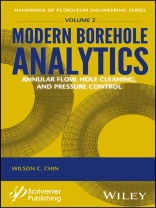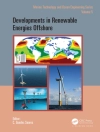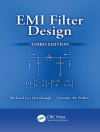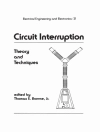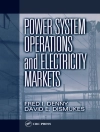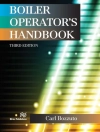Written by a leading industry specialist, a must-have for drilling specialists, petroleum engineers, and field practitioners, this is the only book providing practical, rigorous and validated models for general annular flows, eccentric geometries, non-Newtonian fluids, yield stresses, multiphase effects, and transient motions and flow rates and includes new methods describing mudcake integrity and pore pressure for blowout assessment.
Wilson C. Chin has written some of the most important and well-known books in the petroleum industry. These books, whose research was funded by the U.S. Department of Energy and several international petroleum corporations, have set very high standards. Many algorithms are used at leading oil service companies to support key drilling and well logging applications.
For the first time, the physical models in these publications, founded on rigorous mathematics and numerical methods, are now available to the broader industry: students, petroleum engineers, drillers and faculty researchers. The presentations are written in easy-to-understand language, with few equations, offering simplified explanations of difficult problems and solutions which provide key insights into downhole physical phenomena through detailed tabulations and color graphics displays. Practical applications, such as cuttings transport, pressure control, mudcake integrity, formation effects in unconventional applications, and so on, are addressed in great detail, offering the most practical answers to everyday problems that the engineer encounters.
The book does not stop at annular flow. In fact, the important role of mudcake growth and thickness in enabling steady flow in the annulus is considered, as is the role of (low) formation permeability in affecting mud filtration, cake growth, and fluid sealing at the sandface. This is the first publication addressing ‚the big picture, ‚ a ‚first‘ drawn from the author’s related research in multiple disciplines such as drilling rheology, formation testing and reservoir simulation. A must-have for any petroleum engineer, petroleum professional, or student, this book is truly a groundbreaking volume that is sure to set new standards.
Inhaltsverzeichnis
Preface xi
Acknowledgements xiii
1 Fundamental Ideas and Background 1
1.1 Background, industry challenges and frustrations 2
1.2 Related prior work 8
1.3 References 13
2 Steady Annular Flow 14
2.1 Graphical interface basics 15
2.2 Steady flows — versatile capabilities 20
2.3 References 133
3 Transient Single-Phase Flows 135
3.1 Validation runs, three diff erent approaches to steady, Power law, non-rotating, concentric annular flow 136
3.2 Validation run for transient, Newtonian, non-rotating, concentric annular flow 138
3.3 Validation run for transient, Newtonian, non-rotating, eccentric annular flow 141
3.4 Effect of steady rotation for laminar Power law flows in concentric annuli 142
3.5 Effect of steady-state rotation for Newtonian fluid flow in eccentric annuli 146
3.6 Effect of steady rotation for Power law flows in highly eccentric annuli at low densities (foams) 149
3.7 Effect of steady rotation for Power law flows in highly eccentric annuli at high densities (heavy muds) 152
3.8 Effect of mud pump ramp-up and ramp-down flow rate under non-rotating and rotating conditions 155
3.9 Effect of rotational and azimuthal start-up 158
3.10 Effect of axial drillstring movement 162
3.11 Combined rotation and sinusoidal reciprocation 165
3.12 Combined rotation and sinusoidal reciprocation in presence of mud pump flow rate ramp-up for yield stress fluid 167
3.13 References 169
4 Transient Multiphase Flows 171
4.1 Single fluid in pipe and borehole system — calculating total pressure drops for general non-Newtonian fluids 173
4.2 Interface tracking and total pressure drop for multiple fluids pumped in drillpipe and eccentric borehole system 174
4.3 Calculating annular and drillpipe pressure loss 199
4.4 Herschel-Bulkley pipe flow analysis 207
4.5 Transient, three-dimensional, eccentric multiphase flow analysis for non-rotating Newtonian fluids 210
4.6 Transient, 3D, eccentric multiphase analysis for non-rotating Newtonian fluids — simulator description 216
4.7 Transient, 3D, eccentric multiphase analysis for general rotating non-Newtonian fluids — simulator description 225
4.8 Transient, 3D, eccentric, multiphase analysis for general rotating non-Newtonian fluids with axial pipe movement — Validation runs for completely stationary pipe 227
4.9 Transient, 3D, concentric, multiphase analysis for rotating Power law fluids without axial pipe movement 244
4.10 Transient, 3D, eccentric, multiphase analysis for general rotating non-Newtonian fluids with axial pipe movement — Validation runs for constant rate rotation and translation 248
4.11 References 256
5 Mudcake Formation in Single-Phase Flow 259
5.1 Flows with moving boundaries — four basic problems 260
5.2 Characterizing mud and mudcake properties 277
5.3 Complex invasion problems — numerical modeling 283
5.4 References 310
6 Mudcake Growth for Multiphase Flow 311
6.1 Physical problem description 312
6.2 Overview physics and simulation capabilities 316
6.3 Model and user interface notes 325
6.4 Detailed applications 328
6.5 References 339
7 Pore Pressure in Higher Mobility Formations 340
7.1 Forward and inverse modeling approaches 341
7.2 Preliminary ideas 342
7. 3 Inverse examples — dip angle, multivalued solutions and skin 347
7.4 References 358
8 Pore Pressure Prediction in Low Mobility or Tight Formations 359
8.1 Low permeability pulse interference testing — nonzero skin 360
8.2 Low permeability pulse interference testing — zero skin 365
8.3 Formation Testing While Drilling (FTWD) 372
8.4 References 388
Cumulative References 389
Index 412
About the Author 418
Über den Autor
Wilson C. Chin earned his Ph.D. at the Massachusetts Institute of Technology and his M.Sc. at the California Institute of Technology. He has authored eighteen books in managed pressure drilling, formation testing, reservoir engineering, electromagnetic logging, Measurement While Drilling and wave propagation, in addition to over one hundred papers in computational mechanics and more than four dozen patents in petroleum well logging.standards for the industry.
